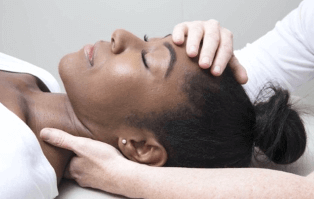Happy football season! We’ve all experienced some form or another of a headache, whether it be from low blood sugar, dehydration, or lack of sleep. But did you know that a concussion is much more than “just a headache”? Concussion by definition is caused by a blow to the head or violent shaking of the head and body. A concussion is also classified as a mild traumatic brain injury. This can occur with or without loss of consciousness and can cause some temporary cognitive issues.

Symptoms of a concussion include:
- Headache
- Confusion
- Nausea
- Vomiting
- Problems with coordination
- Ringing in the ears
- Excessive fatigue and sleepiness
We typically see concussions associated with athletes; think football, lacrosse, soccer, hockey, the list goes on. Did you also know that concussions can be quite common among the public population from motor vehicle accidents and even falls? It is crucial to pay attention to the symptoms that you’re experiencing because some can be scarier than others. For instance, nausea and vomiting could be a sign of increased pressure on the brain, which needs to be evaluated by your doctor immediately.
When we experience trauma from an accident, fall, or blow to the head, the body is going to go into a protective “bracing” pattern to try to help soften the impact and protect us. Unfortunately, these bracing patterns become habitual over time and people often experience head, neck, shoulder, and lower back pain associated with it. This is why it is very important to seek help from a physical therapist, once cleared by your doctor, to help break up these restrictions and holding patterns, avoiding heading down the pathway to chronic pain.

So, what does a typical treatment look like? Well for starters rest is key, as well as limiting television, tablet, avoid video games, and avoiding any sport. Rest and recovery are important, especially limiting excessive stimuli to the brain, eyes, and even ears. There are different types of therapies that are also very helpful in concussion rehabilitation such as:
- Physical therapy
- Occupational therapy
- Speech therapy
- Vision and vestibular therapy
As you can see, it’s more than just a simple “headache”. Sure, headache is one of the symptoms, but it is imperative to be evaluated by a healthcare professional. And this doesn’t just apply to professional athletes: it applies to everyone! Especially our younger middle/high school and college athletes, who sometimes return back to sport too quickly, running the risk of another concussion with potentially more s
Tags: wellness, health and wellness, physical health, healthy tips, Arancia Physical Therapy, Natural treatment, Natural pain relief, physical therapists, physical therapy, health



